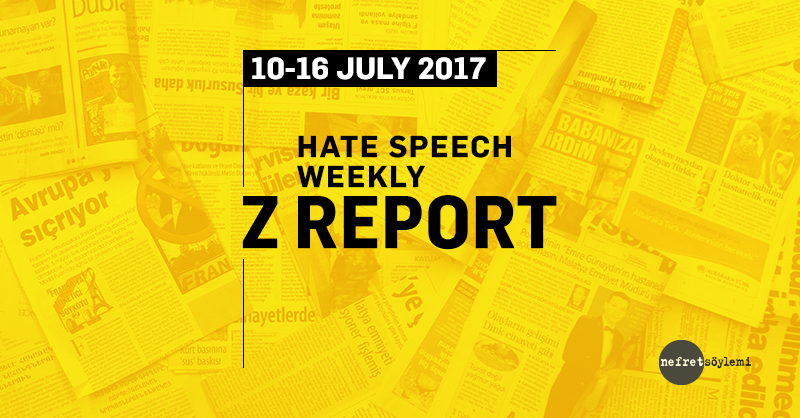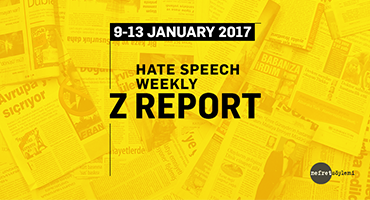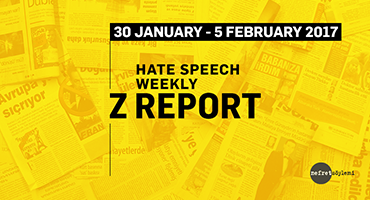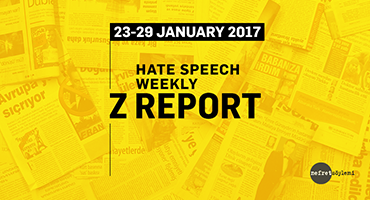Within July 10-16, 2017, three news articles that generate hate speech were selected. You can find these articles that generate hate speech against Armenians, Jews and Syrians as well as the analyses written about them below.1
1.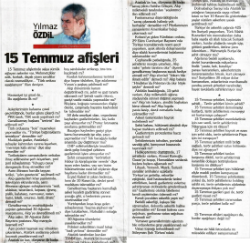
Yılmaz Özdil, in his article titled “July 15 posters”, with statements such as "Are our soldiers not martyred in Syria while 425 thousand Syrians at military age live in Turkey, there are more Syrians who may use guns than the number of people employed by the Turkish Armed Forces, and these people smoke shisha and get their asses all around and money is paid for that...", humiliates Syrians and makes negative generalizations about them by creating the contrast of ‘we and they’ between the two peoples. He thus fuels an already existing prejudice and reinforces hate and discrimination towards Syrian refugees.
|
2.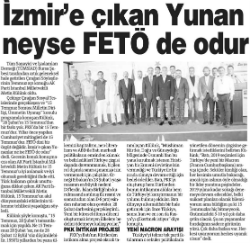
The newspaper Bursa'da Meydan, in the news article titled “FETÖ is what the Greeks who invaded İzmir are”, carries the statement of Metin Külünk, AKP’s Member of Parliament from Istanbul; “FETÖ is not a religious organization. FETÖ is what the Greeks who invaded İzmir are” directly to the title. The newspaper thus approves of a discourse that fuels the perception of enmity towards Greeks coming from the past and helps it become widespread.
|
3.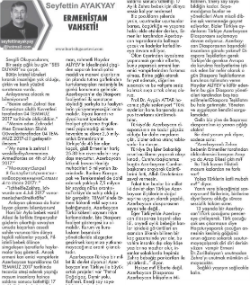
Seyfettin Ayakyay, in his column titled “ARMENIAN ATROCITY”, associates Armenians with violence and massacre with his statements such as “However, we don’t know why the world stays silent at the 17-month baby Zehra murdered as a result of the offending gunfire initiated viciously by the Armenian blood-sucking vampires on innocent people on 04 July 2017 in Azerbaijani territory!”. The author thus fuels the negative perceptions and hate towards Armenians.
|
1. Within the scope of the media monitoring work focusing on hate speech, all national newspapers and around 500 local newspapers are monitored based on pre-determined keywords (e.g. Traitor, apostate, refugee, Christian, Jewish, separatist, etc.) via the media monitoring center. While the main focus has been hate speech on the basis of national, ethnic and religious identities; sexist and homophobic discourses are also examined as part of the monitoring work.

